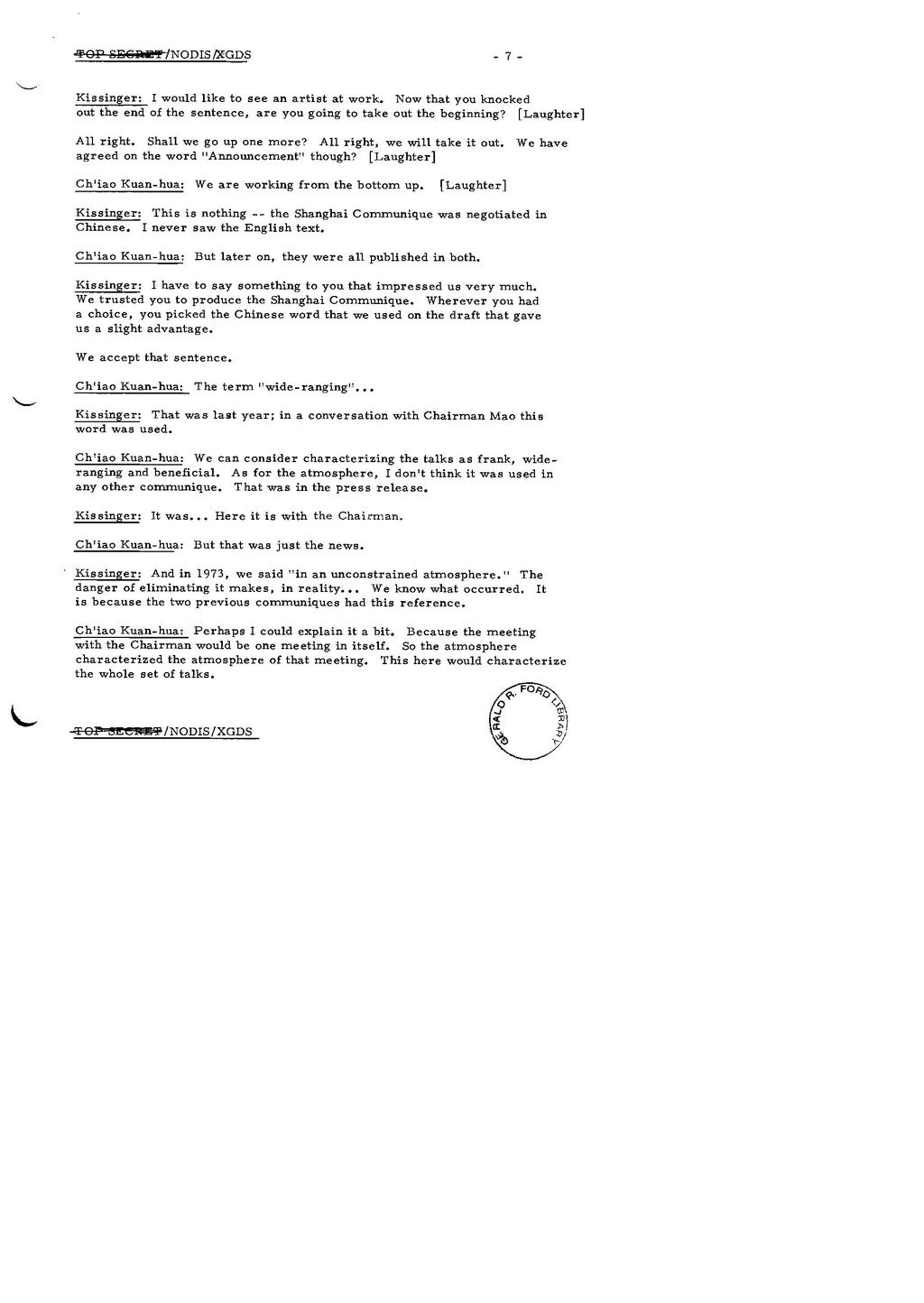Kissinger: I would like to see an artist at work. Now that you knocked out the end of the sentence, are you going to take out the beginning? [Laughter]
All right. Shall we go up one more? All right, we will take it out. We have agreed on the word "Announcement" though? [Laughter]
Ch'iao Kuan-hua: We are working from the bottom up. [Laughter]
Kissinger: This is nothing -- the Shanghai Communique was negotiated in Chinese. I never saw the English text.
Ch'iao Kuan-hua: But later on, they were all published in both.
Kissinger: I have to say something to you that impressed us very much. We trusted you to produce the Shanghai Communique. Wherever you had a choice, you picked the Chinese word that we used on the draft that gave us a slight advantage.
We accept that sentence.
Ch'iao Kuan-hua: The term "wide-ranging"...
Kissinger: That was last year; in a conversation with Chairman Mao this word was used.
Ch'iao Kuan-hua: We can consider characterizing the talks as frank, wide-ranging and beneficial. As for the atmosphere, I don't think it was used in any other communique. That was in the press release.
Kissinger: It was... Here it is with the Chairman.
Ch'iao Kuan-hua: But that was just the news.
Kissinger: And in 1973, we said "in an unconstrained atmosphere." The danger of eliminating it makes, in reality... We know what occurred. It is because the two previous communiques had this reference.
Ch'iao Kuan-hua: Perhaps I could explain it a bit. Because the meeting with the Chairman would be one meeting in itself. So the atmosphere characterized the atmosphere of that meeting. This here would characterize the whole set of talks.
TOP SECRET/NODIS/XGDS

